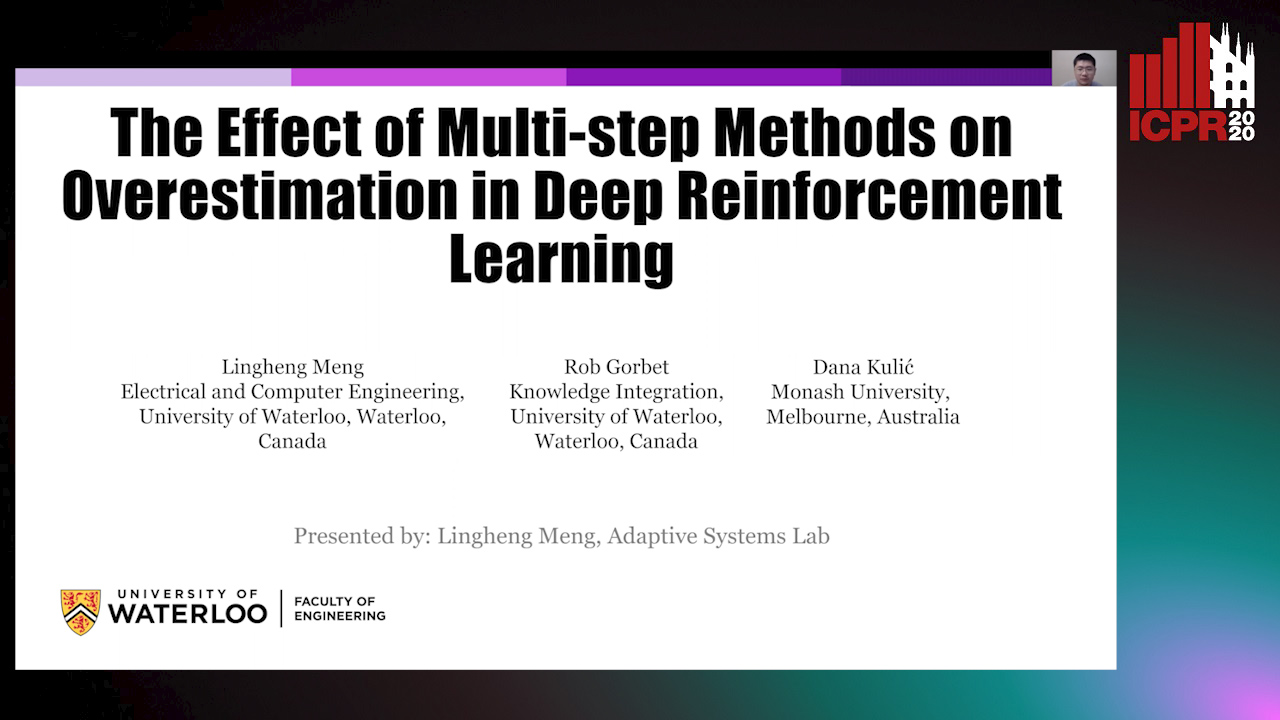Rob Gorbet
Paper download is intended for registered attendees only, and is
subjected to the IEEE Copyright Policy. Any other use is strongly forbidden.
Papers from this author
The Effect of Multi-Step Methods on Overestimation in Deep Reinforcement Learning
Lingheng Meng, Rob Gorbet, Dana Kulić

Auto-TLDR; Multi-Step DDPG for Deep Reinforcement Learning
Abstract Slides Poster Similar
Multi-step (also called n-step) methods in reinforcement learning (RL) have been shown to be more efficient than the 1-step method due to faster propagation of the reward signal, both theoretically and empirically, in tasks exploiting tabular representation of the value-function. Recently, research in Deep Reinforcement Learning (DRL) also shows that multi-step methods improve learning speed and final performance in applications where the value-function and policy are represented with deep neural networks. However, there is a lack of understanding about what is actually contributing to the boost of performance. In this work, we analyze the effect of multi-step methods on alleviating the overestimation problem in DRL, where multi-step experiences are sampled from a replay buffer. Specifically building on top of Deep Deterministic Policy Gradient (DDPG), we experiment with Multi-step DDPG (MDDPG), where different step sizes are manually set, and with a variant called Mixed Multi-step DDPG (MMDDPG) where an average over different multi-step backups is used as target Q-value. Empirically, we show that both MDDPG and MMDDPG are significantly less affected by the overestimation problem than DDPG with 1-step backup, which consequently results in better final performance and learning speed. We also discuss the advantages and disadvantages of different ways to do multi-step expansion in order to reduce approximation error, and expose the tradeoff between overestimation and underestimation that underlies offline multi-step methods. Finally, we compare the computational resource needs of TD3 and our proposed methods, since they show comparable final performance and learning speed.